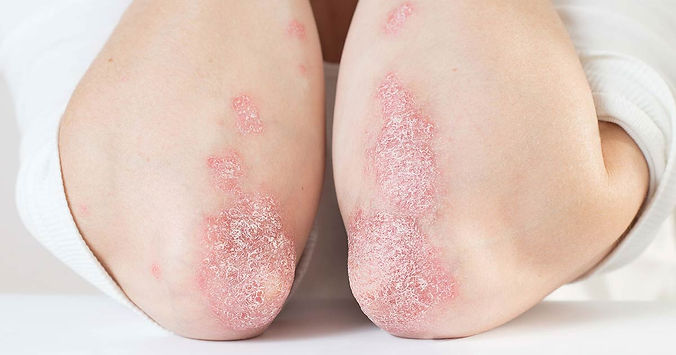
Psoriasis Treatment Services
Psoriasis is a chronic autoimmune condition that speeds up the growth cycle of skin cells, resulting in thick, red, scaly patches on the skin. At our dermatology clinic in Kailua, Hawaii, we specialize in treating psoriasis by offering a range of advanced therapeutic options. Our treatments are designed not only to alleviate symptoms but also to improve the overall health and appearance of the skin, using personalized care plans developed by experienced dermatologists.
Understanding Psoriasis: Causes and Symptoms
Psoriasis is thought to be caused by an immune system malfunction that accelerates skin cell turnover. It can appear on various parts of the body, including elbows, knees, scalp, and lower back. Symptoms include red patches covered with silvery scales, dry skin that may crack and bleed, and itching or soreness around patches. Our clinic provides a thorough diagnosis to understand the severity and type of psoriasis, helping tailor the most effective treatment.
Benefits of Seeing a Dermatologist for Psoriasis
Consulting a dermatologist is crucial for managing psoriasis effectively. Dermatologists can offer specialized treatments that go beyond the capabilities of over-the-counter products. These may include topical treatments, phototherapy, systemic medications, or biologics, depending on the severity and extent of the psoriasis. Early professional intervention can help manage symptoms effectively, reduce flare-ups, and can also help prevent the progression of the disease.

FAQs
What are the triggers for psoriasis?
Triggers can vary but often include stress, skin injury, certain medications, or weather changes.
Can psoriasis be cured?
While there is no cure for psoriasis, it can be effectively managed with proper dermatological care.
What lifestyle changes can help manage psoriasis?
Is psoriasis contagious?
No, psoriasis is not contagious and cannot be passed from person to person.
How does phototherapy treat psoriasis?
Phototherapy involves exposing the skin to ultraviolet light under medical supervision to slow skin cell turnover.
Maintaining a balanced diet, avoiding smoking and alcohol, and managing stress can help reduce psoriasis flare-ups.
